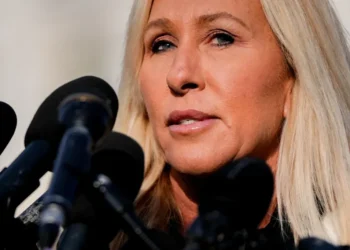Zimbabwe Unveils New Land Policy to Empower Black Farmers with Ownership Rights
On Friday, Zimbabwe’s President Emmerson Mnangagwa launched a groundbreaking land policy aimed at empowering Black farmers with the ability to own and sell land, a significant shift from the country’s previous land reforms. This policy also allows farmers to use their land as collateral for bank loans, offering them new financial opportunities.
A Major Change in Land Ownership Rules
Previously, land that was redistributed to Black farmers as part of Zimbabwe’s land reforms in the early 2000s could not be sold or transferred. This has been a major barrier for the farmers, as they couldn’t access financing from banks, which were hesitant to lend without land as collateral. Now, with this new policy, ownership can be transferred between “Indigenous Zimbabweans” (a term referring to Black Zimbabweans), with government approval.
Mnangagwa explained that the policy was designed to “unlock the value” of the land, making it “bankable and transferable”. For the first time, Black farmers will be able to sell or use their land as collateral to secure financing, opening up new opportunities for growth and development in the sector.
Background on Land Reforms and Challenges
The new policy is a result of land reforms that began in 2000, under former President Robert Mugabe, which saw tens of thousands of Black Zimbabweans take over farmland previously owned by white farmers. These land reforms were intended to correct historical injustices stemming from colonialism, where most of the country’s most fertile land was controlled by a small number of white individuals. However, the implementation of the reforms was marked by violence and displacement, with farmers and workers often forcibly removed from their properties.
Though the land redistribution sought to rectify colonial-era imbalances, it also severely impacted commercial farming, leading Zimbabwe to rely heavily on international food aid. In recent years, agriculture has begun to recover, though droughts and lack of access to financing have continued to pose challenges.
The New Policy’s Impact
On Friday, several farmers, including Mnangagwa himself, received official title deeds to the land they occupy, a symbol of the change the policy brings. The government has also set up a technical committee to manage the process for other resettled Black farmers. This committee will help facilitate the transfer of land ownership and assist farmers in navigating the new system.
Mnangagwa emphasized that secure land tenure is crucial for farmers to access credit and to improve their economic standing. “Our farmers can access credit facilities, and it lifts many out of poverty into prosperity,” he stated.
Looking Ahead
As part of the broader plan, Finance Minister Mthuli Ncube announced in October that Zimbabwe will also begin compensating both local and foreign white farmers who lost land during the 2000 land seizures, marking an effort to resolve longstanding grievances.
The new land policy is seen as a major step toward fostering sustainable growth in Zimbabwe’s agricultural sector while offering Black farmers the opportunity to thrive, both financially and economically.
This article was rewritten by JournosNews.com based on verified reporting from trusted sources. The content has been independently reviewed, fact-checked, and edited for accuracy, neutrality, tone, and global readability in accordance with Google News and AdSense standards.
All opinions, quotes, or statements from contributors, experts, or sourced organizations do not necessarily reflect the views of JournosNews.com. JournosNews.com maintains full editorial independence from any external funders, sponsors, or organizations.
Stay informed with JournosNews.com — your trusted source for verified global reporting and in-depth analysis. Follow us on Google News, BlueSky, and X for real-time updates.














